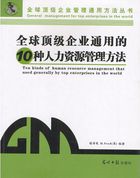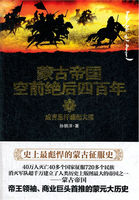Among the directors of the North Chicago City company there was one man, Edwin L. Kaffrath, who was young and of a forward-looking temperament. His father, a former heavy stockholder of this company, had recently died and left all his holdings and practically his directorship to his only son. Young Kaffrath was by no means a practical street-railway man, though he fancied he could do very well at it if given a chance. He was the holder of nearly eight hundred of the five thousand shares of stock; but the rest of it was so divided that he could only exercise a minor influence.
Nevertheless, from the day of his entrance into the company--which was months before Cowperwood began seriously to think over the situation--he had been strong for improvements--extensions, more franchises, better cars, better horses, stoves in the cars in winter, and the like, all of which suggestions sounded to his fellow-directors like mere manifestations of the reckless impetuosity of youth, and were almost uniformly opposed.
"What's the matter with them cars?" asked Albert Thorsen, one of the elder directors, at one of the meetings at which Kaffrath was present and offering his usual protest. "I don't see anything the matter with 'em. I ride in em."
Thorsen was a heavy, dusty, tobacco-bestrewn individual of sixty-six, who was a little dull but genial. He was in the paint business, and always wore a very light steel-gray suit much crinkled in the seat and arms.
"Perhaps that's what's the matter with them, Albert," chirped up Solon Kaempfaert, one of his cronies on the board.
The sally drew a laugh.
"Oh, I don't know. I see the rest of you on board often enough."
"Why, I tell you what's the matter with them," replied Kaffrath.
"They're dirty, and they're flimsy, and the windows rattle so you can't hear yourself think. The track is no good, and the filthy straw we keep in them in winter is enough to make a person sick.
We don't keep the track in good repair. I don't wonder people complain. I'd complain myself."
"Oh, I don't think things are as bad as all that," put in Onias C. Skinner, the president, who had a face which with its very short side-whiskers was as bland as a Chinese god. He was sixty-eight years of age. "They're not the best cars in the world, but they're good cars. They need painting and varnishing pretty badly, some of them, but outside of that there's many a good year's wear in them yet. I'd be very glad if we could put in new rolling-stock, but the item of expense will be considerable. It's these extensions that we have to keep building and the long hauls for five cents which eat up the profits." The so-called "long hauls" were only two or three miles at the outside, but they seemed long to Mr.
Skinner.
"Well, look at the South Side," persisted Kaffrath. "I don't know what you people are thinking of. Here's a cable system introduced in Philadelphia. There's another in San Francisco. Some one has invented a car, as I understand it, that's going to run by electricity, and here we are running cars--barns, I call them--with straw in them. Good Lord, I should think it was about time that some of us took a tumble to ourselves!"
"Oh, I don't know," commented Mr. Skinner. "It seems to me we have done pretty well by the North Side. We have done a good deal."
Directors Solon Kaempfaert, Albert Thorsen, Isaac White, Anthony Ewer, Arnold C. Benjamin, and Otto Matjes, being solemn gentlemen all, merely sat and stared.
The vigorous Kaffrath was not to be so easily repressed, however.
He repeated his complaints on other occasions. The fact that there was also considerable complaint in the newspapers from time to time in regard to this same North Side service pleased him in a way. Perhaps this would be the proverbial fire under the terrapin which would cause it to move along.
By this time, owing to Cowperwood's understanding with McKenty, all possibility of the North Side company's securing additional franchises for unoccupied streets, or even the use of the La Salle Street tunnel, had ended. Kaffrath did not know this. Neither did the directors or officers of the company, but it was true.
In addition, McKenty, through the aldermen, who were at his beck and call on the North Side, was beginning to stir up additional murmurs and complaints in order to discredit the present management.
There was a great to-do in council over a motion on the part of somebody to compel the North Side company to throw out its old cars and lay better and heavier tracks. Curiously, this did not apply so much to the West and South Sides, which were in the same condition. The rank and file of the city, ignorant of the tricks which were constantly being employed in politics to effect one end or another, were greatly cheered by this so-called "public uprising."
They little knew the pawns they were in the game, or how little sincerity constituted the primal impulse.
Quite by accident, apparently, one day Addison, thinking of the different men in the North Side company who might be of service to Cowperwood, and having finally picked young Kaffrath as the ideal agent, introduced himself to the latter at the Union League.
"That's a pretty heavy load of expense that's staring you North and West Side street-railway people in the face," he took occasion to observe.
"How's that?" asked Kaffrath, curiously, anxious to hear anything which concerned the development of the business.
"Well, unless I'm greatly mistaken, you, all of you, are going to be put to the expense of doing over your lines completely in a very little while--so I hear--introducing this new motor or cable system that they are getting on the South Side." Addison wanted to convey the impression that the city council or public sentiment or something was going to force the North Chicago company to indulge in this great and expensive series of improvements.















